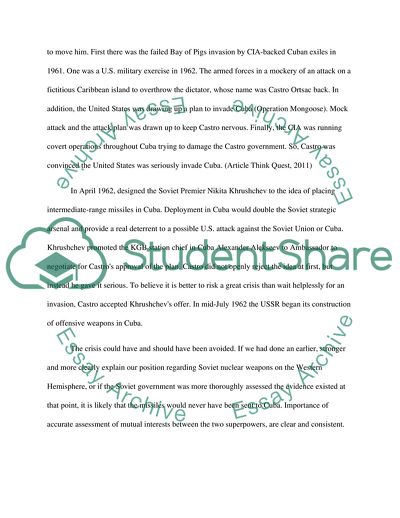Cite this document
(Evaluate the causes, consequences and lessons from the Cuban missile Coursework - 2, n.d.)
Evaluate the causes, consequences and lessons from the Cuban missile Coursework - 2. https://studentshare.org/history/1752358-evaluate-the-causes-consequences-and-lessons-from-the-cuban-missile-crisis
Evaluate the causes, consequences and lessons from the Cuban missile Coursework - 2. https://studentshare.org/history/1752358-evaluate-the-causes-consequences-and-lessons-from-the-cuban-missile-crisis
(Evaluate the Causes, Consequences and Lessons from the Cuban Missile Coursework - 2)
Evaluate the Causes, Consequences and Lessons from the Cuban Missile Coursework - 2. https://studentshare.org/history/1752358-evaluate-the-causes-consequences-and-lessons-from-the-cuban-missile-crisis.
Evaluate the Causes, Consequences and Lessons from the Cuban Missile Coursework - 2. https://studentshare.org/history/1752358-evaluate-the-causes-consequences-and-lessons-from-the-cuban-missile-crisis.
“Evaluate the Causes, Consequences and Lessons from the Cuban Missile Coursework - 2”. https://studentshare.org/history/1752358-evaluate-the-causes-consequences-and-lessons-from-the-cuban-missile-crisis.


